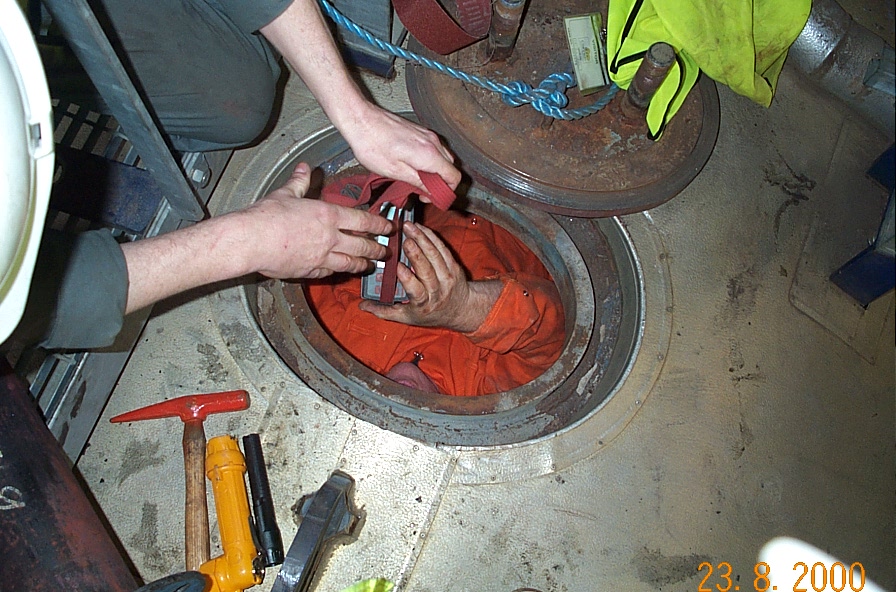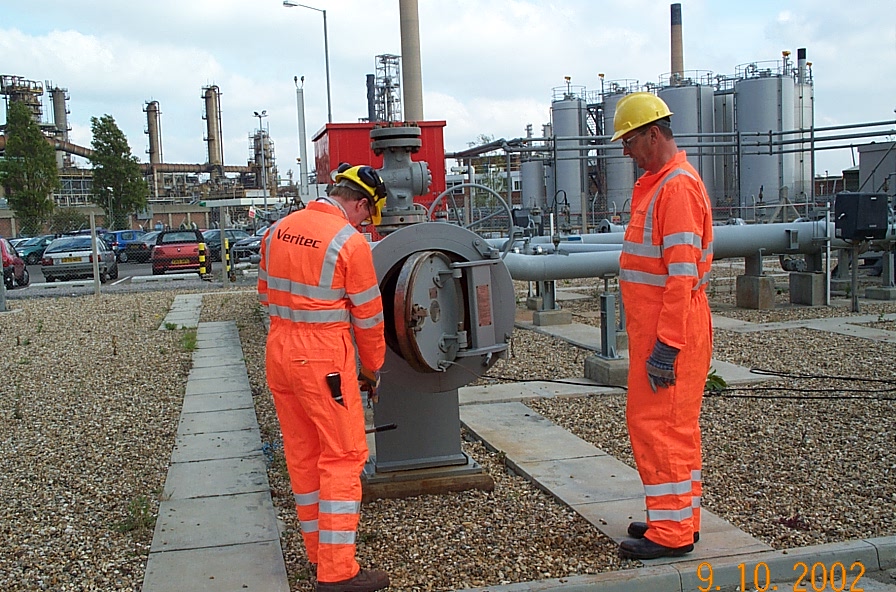INTEGRITY JOB ROLES
SUCCESS STORIES
It’s always nice to hear about success stories. Here are three real case studies from the past year or so
Case study 1: Sideways and happy: NDT technician to survey In-service inspection insurance surveyor
An ex-military technician age 42 retrained as an NDT technician, primarily on offshore rope-access work then progressing to contract work on onshore chemical plants and boilers. After 5 years, the work became repetitive, continued to require physical fitness and involved most weeks spent away from home on construction or shutdown sites.
A more attractive role to this candidate was a job as a pressure plant ‘insurance’ surveyor doing straightforward in-service inspection of small-scale pressure systems. Key points necessary to be accepted into this role was to obtain and demonstrate additional knowledge in;
- Welding inspection
- Relevant statutory regulations that drive statutory inspection (PSSR/LOLER in UK)
- Basic pressure equipment construction codes (ASME, API)
- Reporting methods or vessels and pipework (rather than just thickness checking of steelwork)
Introduction into the new job took 3 months of an internal training programme, including time spent accompanying existing surveyors on site visits. Reporting requirements were different to the previous job but no more difficult. The biggest advantage was the change to being home-based during the week with daily travel and only occasional nights away. Physical demands were less, with no more rope access inspection. Similar to the NDT technician role, there still remained a choice of 8-10 employers in the same field to allow for possible moves in the future. Salary level proved less than a contract NDT role (particularly offshore) but acceptable for a sideways move into a permanently home-based job.
 Case study 2: Onwards and upwards: Plant inspection surveyor to refinery in-service inspection
Case study 2: Onwards and upwards: Plant inspection surveyor to refinery in-service inspection
An ex-plant operator age 32 retrained as an in-service plant ‘insurance’ surveyor for a third-party inspection company. After 2 years the job became very repetitive. Daily travel rose to 800 miles per week on a regular basis with more time spent driving than inspecting equipment. There are only so many service-station sandwiches you can eat. Inspecting simple equipment items such as air receivers, laundry and coffee boilers produced few technical challenges and the candidate felt much of his earlier 15 years’ experience on operating and maintaining industrial process plant was being wasted.
An upward move to an in-service inspection job in a refinery was seen as a big step. Little encouragement was forthcoming from colleagues who (as well as enjoying inspecting coffee boilers) claimed that such a move was impossible as ‘refineries only employed hot-shot graduates’. The world is of course full of such naysayers.
The first step in moving up was to appreciate the more complex equipment that is found in refineries. No-one is in the least interested in inspecting their coffee machine when there are heat exchangers, boilers, fractionator reactor and cracker vessels to be dealt with. These suffer from a vast selection of damage mechanisms (look in API RP 571) all of which influence the extent and type of inspection technique required. Training in these subjects give you the first step on the ladder.
For the second step, this candidate needed an intermediate step first. This is fair enough – you can’t jump from the first step of a ladder to the top. Refineries will rarely recruit mature unknown inspectors directly into their inspection department – there is just too much risk involved. They are more likely to feel comfortable with someone who has been working on their site during shutdowns for a couple of years, where they have seen evidence of their ability, and the quality of the inspection reports they’ve produced. Interest, experience and capability will shine through, goes the theory – which is true. That is how this transfer worked, just over 2 years from conception to completion. An initial direct-line contract position for a trial shutdown was followed by the offer of a full-time staff position.
The result of the transfer was always predictable, large amounts to learn about the technical aspects of damage mechanisms and inspection techniques that had previously been hidden. Then there’s the longer hours and the requirement to make awkward decisions then justify them to others in the milieu of technical confrontations that make up refinery politics. Healthy salary though, with maybe some Fridays off, as long as there is not a shutdown on, that is.
 Case study 3: Work-life balance: Return to contract inspection
Case study 3: Work-life balance: Return to contract inspection
There is no reason why sideways or downwards career moves should not be as desirable as upward moves out some stages of your career. Let’s get round the idea that a downwards career move has to be the start of a life permanently downwards – it is just as easy to see it as part of a regrouping, on the longer-term career path leading to a different place that you want to be.
Our candidate was at age 32, firmly cemented into a full-time staff position in a large pharmaceutical manufacturer. After an early progression from mechanical apprenticeship to site inspector, an employer-funded degree qualification was too good to resist. On completing it, a return to inspection would have been seen as a backward step. Project management positions followed, some mildly satisfying, and some mined in inter-site politics, presided over by that thankless zero-sum game known as ‘liaising with head office’. Job satisfaction and interest can wilt under such a situation and, surprise; so they did.
Is there a guaranteed easy way out of this?
In fact, is there any way out of this?
Yes, the answer is simply a brief step backwards, a change of focus sideways and then a climb back up (a slightly different ladder) again. Think of this as a bit of planned consolidation, rather than a backward step as such. Here it is in action;
- Get back to the technical aspects of integrity, not the management stuff, but above the routine disciplines of NDT and repetitive hands-on inspections.
- Get involved in discrete, shorter term projects, free of the administration requirements of dealing with head office support functions and all their friends.
- Concentrate on moving up the integrity engineer hierarchy, rather than a more generalist management one where image and form are often more important than function.
Owing to the size of the initial step down, taking this route often has to mean a clean resignation and change of employer (message….. always keep some cash for a rainy day). The next stage for this candidate was short-term contract work, gained on the basis of past pure technical experience, and a clear enthusiasm for more complex, higher level inspection work, on refinery and similar plant. Success breeds success in these types of contract once your experience and commitment gets noticed.
Now for the end game
The target remember is a move up from inspection engineer to integrity engineer, putting you back on a ladder, parallel and more desirable to the one you left. You’ve got to avid the pitfall here – the one that traps you back in the honeypot administration role while the proper technical stuff is done by someone else. It took our candidate (this is a real case) about a month to land the position with the best profile, cutting through the employer jargon to avoid those who (even perhaps, unbeknown to themselves) were looking for a manager and administrator rather than someone with difficult-to-match technical knowledge.
There are many variations on the career track described in this example. The nature and size of the strategic step down, the job titles, and the timescales of the whole affair vary a lot. It works well however, and has proved itself too many times in practice for its success to be a coincidence.
Do career moves in the integrity industry always go this smoothly?
No they don’t; it’s equally as easy to get things badly wrong if you don’t have a clear idea about what the nature and responsibilities of some of the job roles are. It pays to be cautious.Read our linked article; Lessons learned about people that made the wrong decision.
Watch out for jobs to be avoided also. You really wouldn’t want to be applying for the one described in ;Non-job of the week,would you?
We offer a TRIAL TECHNICAL INTERVIEW
If you want to check your knowledge for a specific job role in the integrity industry then try our trial technical interview. Its purpose is to test you on the technical aspects of the job you are thinking of applying for. There’s no time limit on it but expect it to last at least 20 minutes. After the discussion we’ll give you honest feedback on how you did. Just let us know the type of position you are going for; we’ll do the rest and respond with at time slot for you to call us.
There’s no charge, but we will expect you to call us at the allocated time and be ready to answer technical questions.
Remember your trial interview is on a purely technical subjects. We are not interested in you personality traits, do-gooding activities or any wonderful extra-curricular interests you may have.







